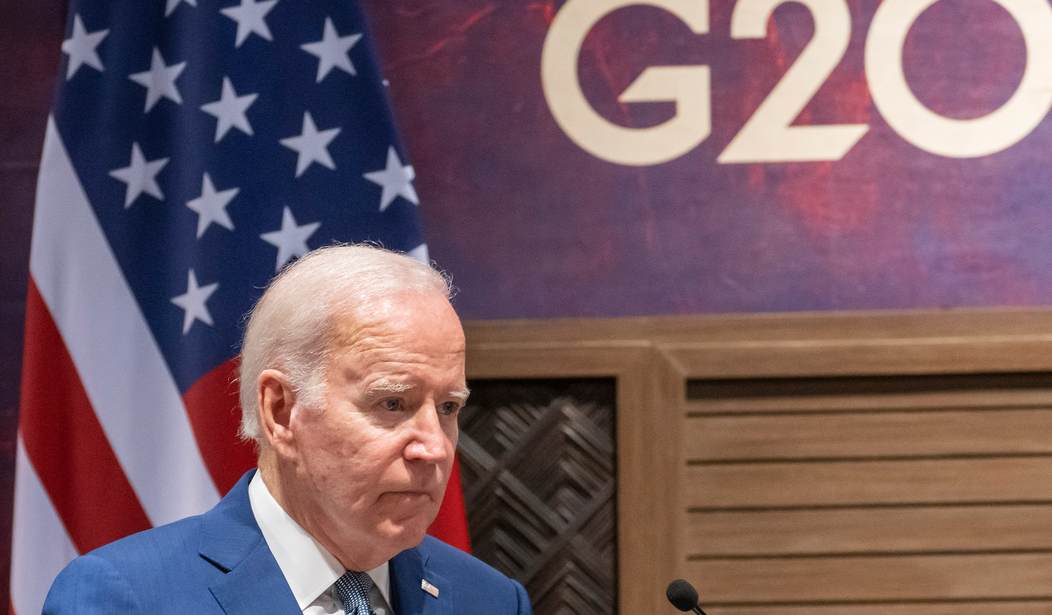The White House announced yesterday that as one of the results of the G20 meeting, Indonesia is set to receive $20 billion to transition from coal to green energy. According to the press release/fact sheet, a coalition of nations all signed on to the Just Energy Transition Partnership. Those nations include “the Government of the Republic of Indonesia (GOI) and the Governments of Japan, the United States of America, Canada, Denmark, the European Union, the Federal Republic of Germany, the French Republic, Norway, the Republic of Italy, and the United Kingdom of Great Britain and Northern Ireland (together the “International Partners Group” or IPG).”
A lengthy joint statement issued by the countries highlights the urgency to among other things, enact multiple climate change initiatives, lower carbon output, and facilitate an orderly transition to a net-zero world. It also recognizes “the importance of Environmental, Social, and Governance standards as a consideration for developing transition financial frameworks and the existing gap between current standards and energy transition needs.” Interestingly enough, as part of the process includes creating green jobs, the statement also reads:
“Further underlining that a just process of transition is based on the full involvement of relevant actors including organized labour (emphasis mine) and business to implement human capital development programs through reskilling and upskilling, creating employment and providing other forms of collaboration so that workers are major beneficiaries of the transition to a greener future.”
There is much more to the statement and I suggest you read it. Beware: It is extremely long and cast in cryptic govspeak, which is probably intentional since it makes it much more difficult to identify all of the requirements and potential consequences of this plan. Good to know that if nothing else, world leaders share a penchant for bureaucracy. See? It’s a small world, after all.
The main thrust of the effort is to transition specifically Indonesia and eventually the world away from coal and to renewables. This, of course, will cost money, and the White House press release explains how this will be paid for in the case of Indonesia:
“To achieve these targets, this long-term partnership intends to mobilize an initial $20 billion in public and private financing over a three-to-five-year period, using a mix of grants, concessional loans, market-rate loans, guarantees, and private investments. Contributions to the JETP include $10 billion in public sector pledges, and a commitment to work to mobilize and facilitate $10 billion in private investment from an initial set of private financial institutions coordinated by the Glasgow Financial Alliance for Net Zero (GFANZ), including Bank of America, Citi, Deutsche Bank, HSBC, Macquarie, MUFG, and Standard Chartered. The partnership will also leverage the expertise, resources, and operations of the multilateral development banks.”
The Daily Caller notes that Indonesia depends on coal to power its steel industry and that in 2020, coal made up 37% of the energy the country used. Since I am not a scientist, I am curious as to how the country will be able to produce steel without coal and how renewables can make up the difference. Or if that is even possible.
I guess the only question remaining is, who’s going to tell China? Probably no one, since China owns a piece of everything and everyone and thus needs to be kept happy. Bloomberg reports that China plans to add more coal plants to insure its energy security. But don’t worry. The country’s representatives to the COP27 summit told those assembled that this is only a short-term move to address the country’s electricity shortages. China will get around to hitting net zero by 2060. The Chinese claim they just want to avoid an energy crisis similar to the situation in Europe. But the climate crowd is concerned that we will hit the wall by 2040. However, I doubt anyone is going to sanction China for bringing new coal plants online or chastise it when it does not meet the net zero goal. It’s China, after all, and it pretty much thumbs its nose at the world while it writes its own ticket.
For our VIPs: Green Parties in Europe Face Sobering Reality That They Need Fossil Fuels After All
I have been accused of being opposed to private jets. I am not. I am opposed to celebrities who own private jets and fly around the world griping about climate change. I am opposed to people who declare that the world is coming to an end and emote over temporary oil and gas rigs but flock to high-end ski resorts that aren’t going anywhere anytime soon. I am opposed to governments that want to get rid of ICE vehicles and replace them with EVs that many people cannot afford. I am opposed to crony capitalism, which backs companies like Fisker and Solyndra that go belly-up. I am opposed to wealthy people telling the common person that he or she has to do with less, and be hot or cold, while these wealthy people never sacrifice anything. I am against ESG policies that block U.S. oil development while promoting the industry in China.
I am sick of the hypocrisy. I am all for a cleaner environment, but if they want me to get on board, there are some conditions:
When the world leaders who have grand designs for our lives move into regular apartments, not high-rent high-rises; start taking the bus instead of limos and SUVs; when they learn to put on a sweater instead of adjusting the thermostat, and when they exchange their high-end vacations for stay-cations or a trip to Six Flags, then I may believe they are serious about climate change.










Join the conversation as a VIP Member